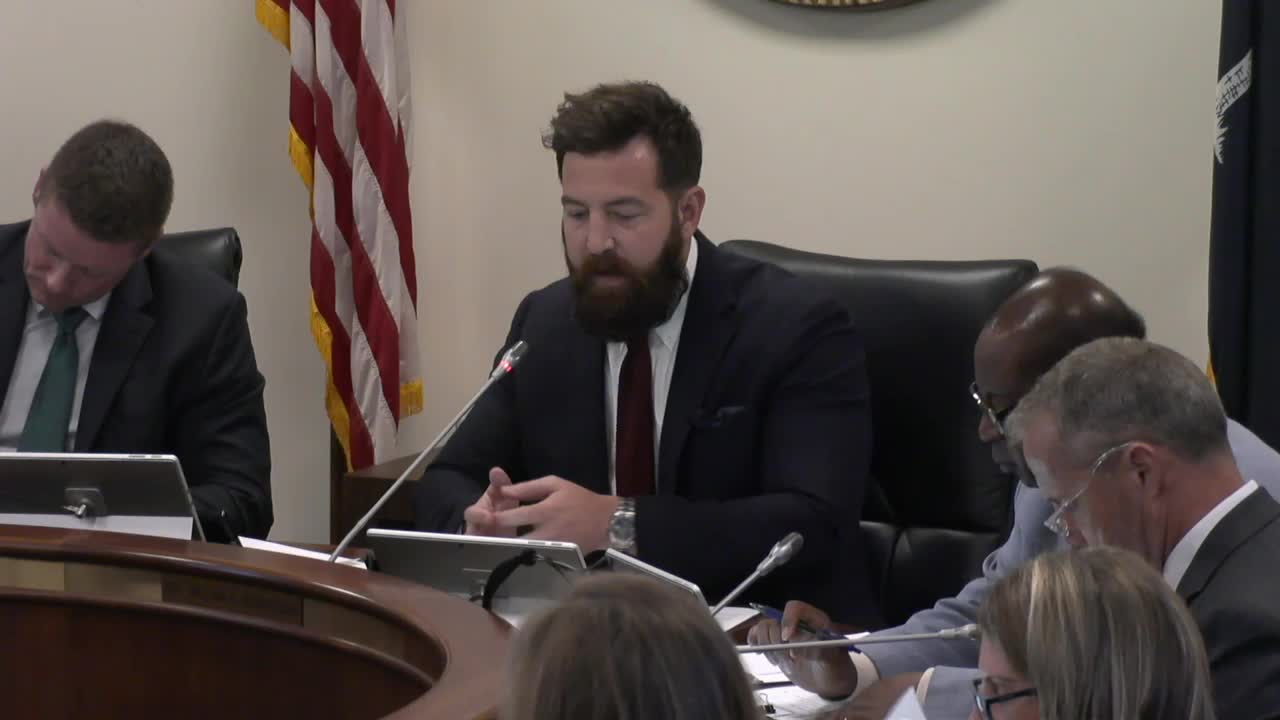Committee pauses debate on H.3968 after expert testimony and utility objections to mandatory behind‑the‑meter programs
Get AI-powered insights, summaries, and transcripts
Subscribe
Summary
H.3968, a bill to require state emergency planning and programs to protect infrastructure from electromagnetic pulses (EMP) and geomagnetic disturbances, drew lengthy testimony from national security and utility experts; the subcommittee voted to adjourn debate so sponsors and stakeholders can refine the bill.
Representative Kathy Landing, sponsor of H.3968, presented legislation that would add a new article to Title 1, Chapter 1 requiring the South Carolina Emergency Management Division (EMD) to produce an EMP/geomagnetic disturbance preparedness plan and set other state actions. The bill, as presented, would require a preparedness plan by January 1, 2026; direct utilities to offer a program allowing residential customers to pay for EMP protection for personal assets; provide grant incentives to municipalities and critical infrastructure entities that comply within one year; and request multi‑year funding in the 2026 Appropriations Act to implement the plan.
Representative Landing framed the bill as a response to both natural hazards (solar flares/coronal mass ejections) and possible hostile action that could create electromagnetic pulses. "Geomagnetic disturbance, coronal mass ejection are the official terms," Landing said, and she said South Carolina EMD Director Kim Stinson indicated a six‑month timeline for producing an improved preparedness booklet, which informed the January 2026 deadline in the draft.
Two national experts and two retired senior military officers testified in favor of action. Ambassador Henry Cooper described historical tests and national vulnerability: "If we had that sort of thing happen today over The United States, it would shut down our entire grid, and it would be down for months." Major General (ret.) Lehi Eisner described prior South Carolina work on the Lake Wylie project to identify critical nodes, urged rapid, phased action and argued the cost to protect critical infrastructure could be distributed and affordable.
Utility witnesses opposed provisions that would require utilities to install or finance behind‑the‑meter protection. Jeff Penland (Santee Cooper) asked the committee to remove a section that would require electric providers to offer installation and financing for customer‑side equipment, saying installation is "behind the meter" work that is currently a customer responsibility and that forcing utilities into that business would shift costs to all ratepayers. Penland said prior fiscal work on similar language had produced a substantial cost estimate for the utility; later in the hearing he said prior estimates were "just shy of a billion dollars" and that full implementation could take about a decade. Tiger Wells, vice president of government affairs for Duke Energy in South Carolina, highlighted three concerns: (1) the bill's scope and lack of a precise technical definition for the covered event or device, (2) EPRI and other standards bodies have not identified vetted residential protection devices, and (3) disclosure of some planning details could create operational risk.
After extended discussion, Representative Wooten moved to adjourn debate to allow sponsors and stakeholders to refine the bill; the motion carried on a show of hands. The transcript records committee direction to continue work with stakeholders rather than adopting the bill in its present form.
